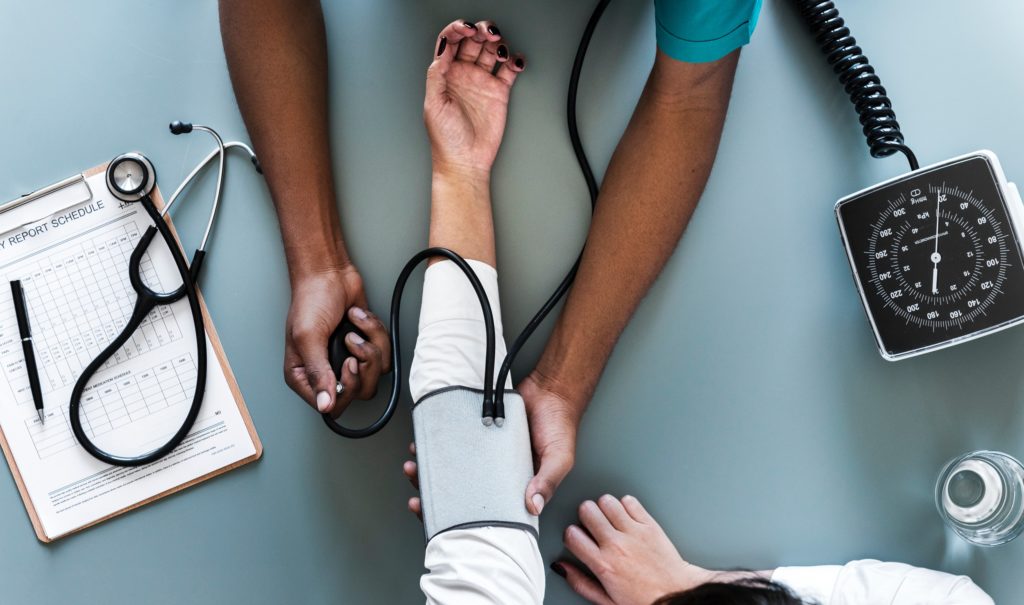Let’s Talk about Your Health
Making a conscious decision to educate yourself on gender-related health issues is good for your patients and your organization
For the last three decades or so, there has been a greater focus among health professionals on how gender impacts health. Raising awareness about the influence of gender on health should start with the undergraduate curriculum; yet, at least for the time being, pharmacists get this type of preparation after they have completed their degrees, as part of their continuing education. While pharmacy training on women’s health has increased, professional education on men’s health issues is still limited.
Beyond anatomical and physiological differences, skillful pharmacists know there are societal and economic considerations of women’s and men’s health, as well as cultural, ethnic or racial influences that affect health seeking behaviors.
Women’s Health Is Not All about Reproduction
Women’s health is not limited to reproductive matters. Contraception, infertility, menopause, polycystic ovary syndrome, pregnancy and lactation, are all crucial aspects of women’s health, but health issues and care strategies for women are much broader.
Some health conditions might affect women primarily or more severely than men. For instance, American women are at a higher risk for breast cancer than men. But even health issues that are common to both men and women, the effects of the condition, and the necessary care to treat it, can differ significantly for women.
The leading cause of death for men and women in the United States is heart disease. However, women are more likely to die following a heart attack than men are.
While more women than men suffer a stroke each year, many of the risk factors for stroke are shared by both genders. Nevertheless, some risk factors are unique to women. For example, taking birth control pills, being pregnant, using hormone replacement therapy, having frequent migraine headaches, having a thick waist, and high triglyceride levels.
Women are more likely to show signs of depression and anxiety than men are. Depression is the most common women’s mental health problem, and more women than men are diagnosed with depression each year. Women also appear to be affected by osteoarthritis more than men are.
Women may experience delays in treatment of sexually transmitted diseases and infections because symptoms are less obvious than in men, or are more likely to be confused with another less serious condition, such as a yeast infection. Leaving STDs/STIs untreated may result in infertility.
Recently, stress among women has increased. Almost 50 percent of all women in a survey conducted by the American Psychological Association, reported their stress had increased over the past five years, compared to 39 percent of men. A recent NICHD study found that stress might reduce a woman’s chance of becoming pregnant.
Women are more likely than men to experience urinary tract problems. For instance, urinary incontinence affects twice as many women as men due to the way the female urinary tract is structured.
Issues of alcohol dependency or addiction are more common in men than in women; nonetheless, women who abuse alcohol may have more serious health effects, such as increased risk of breast cancer, heart disease, and fetal alcohol syndrome.
With appropriate training, pharmacists can help women better understand their entire health status.
Discussing Health with Men
More men than women die in numerous disease categories, including heart disease, lung and colon cancers, influenza, chronic liver disease, and more, according to CDC statistics.
According to Brandon Leonard, Director of Strategic Initiatives at the Men’s Health Network, men are often reluctant to go to the doctor, but are more likely to visit their pharmacy to look for medications that can help with a condition. Therefore, pharmacists are in a position to encourage men to ask questions, express their health concerns, and get important health screenings.
There are numerous health conditions about which pharmacists can provide information and guidance to men. Heart health issues affect many men, so pharmacists can counsel male patients on how to manage blood pressure and cholesterol levels.
As men age, they may have more concerns about prostate health or erectile dysfunction. The effects of low testosterone may impact a man’s libido, cause hair loss, reduce bone and muscle mass, as well as energy levels. With the appropriate training, pharmacists can help their male patients recognize these symptoms and consider the potential conditions that may be related, including heart disease and diabetes.
Regardless of gender, medication adherence is challenging, but men tend to struggle more with it. Thus, pharmacists can help men grasp the importance of establishing a routine and sticking with the entire treatment plan.
Encouraging men to open up about their health is not enough, though. Health professionals may have the perception men don’t want to talk about their health status, but asking questions with the right frame can do wonders to make men feel more comfortable and share their concerns.
Telling a male patient that he should ‘take care of yourself’ may not be as effective as telling him that taking ‘charge’ of his health will help him be in control of his life—using language that’s relevant and meaningful can make a big difference.
Understanding men’s motivation to take action about their health may also help. For many men, the ability to help their family and friends is central, so an effective message for a male patient could be: “Taking charge of your health will ensure you can be there for your family and friends. If your health suffers, you can’t be effective in this role.”
Many men tend to respond well to facts and numbers, and respect confidence from the person speaking to them.
References
Erickson, A., Bullman, WR., Davidson, D. (2015). Men’s health: We need to talk. Volume 21, Issue 7, Page 28. Retrieved from https://www.pharmacytoday.org/article/S1042-0991(15)30246-2/fulltext
https://www.nichd.nih.gov/health/topics/womenshealth/conditioninfo/howconditionsaffect
____________________________________________
The Division of Pharmacy Professional Development is presenting the Fall Milwaukee Conference in September. This year the Conference will focus on the health challenges of men and women. Gain the skills and confidence to address your patients’ needs and concerns.

